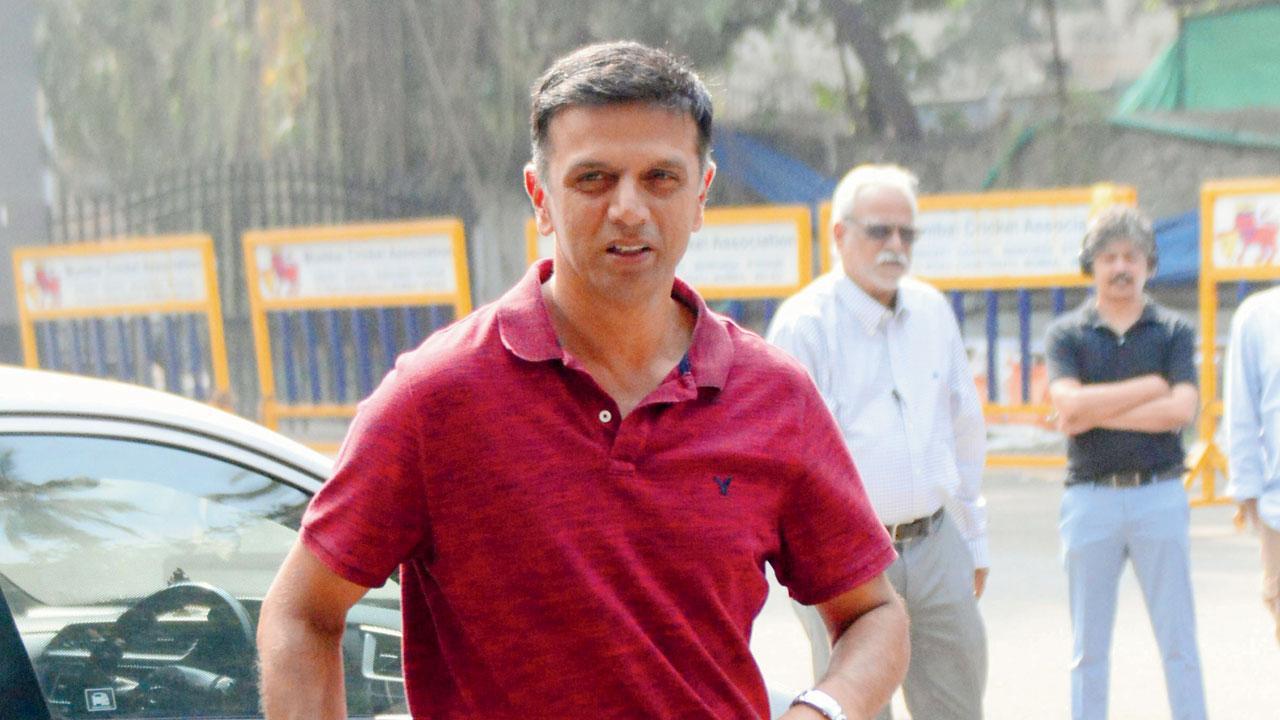Former Indian skipper Rahul Dravid’s advert that depicts his uncharacteristic road rage has been making waves since its release. Experts share the importance of developing healthy outlets for your angry outbursts

The otherwise calm Rahul Dravid’s portrayal of a stereotypical ‘angry man’ has sparked discussions about the importance of anger management. Pics/Instagram
When Rahul Dravid would step out to bat, the entire country sat up and took notice. When he used a cricket bat in a commercial to smash the rear-view mirror of a near-by car in an apparent fit of road rage, it took the Internet by storm. So synonymous is Dravid with his icy cool, almost stoic demeanour, that even the advertisement in question has him proclaim himself as ‘Indiranagar ka gunda’ owing to his outburst. The understanding is implicit — anger simply has no place in civilised society.
“It’s important to understand that anger, in itself, is neither healthy nor unhealthy. It is what you do with that anger that can be classified as healthy, appropriate and sustainable or unhealthy, inappropriate and unsustainable. The function of emotions is to communicate your needs in a given situation. They stir a response in your physiology (body) and influence your behaviours (actions) so that you can respond to the situation effectively,” explains psychologist Priyanka Bajaria. And so, when we shut down or repress our anger, we are not tuning in to our needs, she adds. Collectivist cultures discourage expressions of anger so as to avoid hurting people and preserve harmony within relationships. This is also why we tend to not learn the skills of communicating anger in healthy ways.
Take time off to process your mental state. Representation pic
Bajaria also points out that repressing anger has been found to have repercussions on mood, cognitive activities and physical well-being. “A study by Earnest Harburg, a psychologist and professor at the University of Michigan, found that people who suppressed the anger they experienced in response to an unjust attack were more likely to develop bronchitis, heart attacks and die earlier than their peers who found ways of expressing their anger. I visualise this process as a type of internal combustion, which is will cause lasting damage,” she cautions.
Don’t suppress it
Common advice such as ‘counting from one to 10 whenever you are angry’, ‘drinking water’, or ‘thinking about something else’ don’t work, says counselling psychologist Sushma IR. This is because anger is a dynamic emotion, and the aforementioned techniques only serve to suppress it. “Your goal must be to transform anger to a healthier negative emotion such as annoyance or irritation, which you can then express rationally,” she adds.
Sami Sayyed
>> Learn to communicate your anger, rather than acting it out. Use the following sentence structure: I feel angry because (specify the reason). Frame the sentence in your mind before saying it.
>> Ask yourself, ‘What am I aiming for? Will my anger help me to achieve it?
>> Acknowledge that you are angry and communicate this to those around you, says Kanchan Rai, a mental well-being coach. Take time off to process your emotional state before expressing what is bothering you. Bajaria also emphasises the importance of replacing “I am angry” with “I feel angry”, so you can depersonalise the anger and look at the situation objectively. Sami Sayyed, a 30-year-old marketing professional admits that this strategy transformed the way he managed anger.
“In the past, I would try to suppress my irritation until things went out of hand. I have often broken things that were dear to me. Taking a step back has given me the clarity to respond and not react,” he says.
Sushma IR; Kanchan Rai; Fatima Agarkar; Priyanka Bajaria
>> Change what you can and let go of what you can’t, says Rai: “Instead of agonising over triggers that are beyond your control, distract yourself by doing something you enjoy.”
>> With young children, educationist Fatima Agarkar recommends setting clear boundaries about acting out behaviour but encouraging them to talk about what is bothering them.
 Subscribe today by clicking the link and stay updated with the latest news!" Click here!
Subscribe today by clicking the link and stay updated with the latest news!" Click here!







